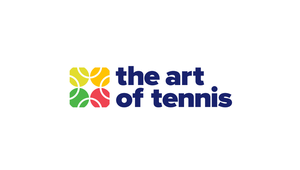What I learnt as my Dad’s assistant football coach.

By the time I was 12 years old, I had sat several seasons on the bench of senior country football competitions. Football was a big part of my life as a junior player but as a tag along with my Dad, who was the coach of both Junior and Senior football teams in the Adelaide Hills area.
I remember clearly trying to convince Dad why one guy should definately play on the wing because he was fast and that that other guy should go in to the middle because he was a good tackler. Amazingly Dad must of listened to me as I always believed that I was being heard. I am pretty positive that where he patiently listened to me, he didn’t change his line up for mine, but I watched games and matches with passion and really enjoyed the team atmosphere. This was my first few years of being an ‘unofficial’ assistant coach and so many of the things I learnt at that time, I apply to in training kids in tennis and training tennis teams.
At the time I thought he was the best coach in the world but now I have grown up and learnt more, I realise that he really was an exceptional coach who impacted so many young men playing football in his 20 plus years of coaching. I would be crazy to think that his coaching didn’t have a huge impact on my tennis coaching philosophies.
I should add though that during the game he did tell me not to interrupt which was fair enough. He was pretty cool, calm and collected but if he went walking down the boundary line after a bad patch of play, I knew it was best to keep things to myself!
5 things that stick out in my memory:
Committed
As an A grade football coach at the time, you are paid a small sum to cover petrol money and a few free club dinners. However outside of training and matches, he was thinking about the team and sitting at the kitchen table, picking potential line ups. Picking a line up of players also became one of my favourite pastimes and I am sure that again, I would of tried to sell Dad on why he should use my starting line up…..
Lesson 1 – Have passion in what you do.
Integrity
I clearly remember several situations where the ‘favourite son’ was coming back from injury or back to the club and they had an established reputation among supporters and committee’s. However if they didn’t train like all the others and in any way didn’t follow the same standards as the most uncoordinated player in the team, then Dad would not pick him. This is hard to do but you are putting the message across to the whole team that the standards are the same for everyone, no matter how well you have played in the past or best and fairest’s you may have won. This was also a time where country footballers were starting to get paid to play matches. Dad never liked that and preferred to give the local boy who had been training hard for months the opportunity rather than recruiting and paying an outsider and not paying anyone else. I think this shocked alot of people who would of have gone for the ‘get win quick’ philosophy rather than building a bunch of players long term.
Lesson 2 – No double standards
Praise publicly, criticise privately
This is something I have read so many times since but Dad would be seen crouching over talking to someone who needed immediate feedback but as a group rarely I remember him singling anybody out in a negative way but only in a positive way to elevate the team and that player.
Lesson 3 – Positive feedback is more powerful than negative
Evolve with the game
This was a time where Australian Rules Football was changing from taking a mark and then going back on your mark to try and kick long to a game where once you take a mark, you should be giving it off to a player running past. This obviously sped the game up and changed so much about the nature of the game. I just remember him telling everyone to ‘get on with it’ and ‘get the handball out’ and ‘run past’ etc.
Lesson 4 – Move with the times
Respect
This is a memory of junior football coaching by my Dad who would be reading out the junior colts or senior colts results and best players. All of the kids would be down there for presentations and a meal and some of the supporters were often drinking most of the day. If they were too loud at the back and no one could hear the presentations then Dad would shout out and tell them to shut up for a few minutes!
Lesson 5 – Show respect to the junior teams as much as the A grade teams.
All of these lessons apply to tennis and they form part of a long term development of a player or team rather than instant results that have no foundation.
Oh and thanks Dad for the unofficial assistant coaching role, I have no idea how you put up with me!
Cheers
Rick Willsmore
Scarborough Tennis Academy
www.scarboroughtennis.com.au
















